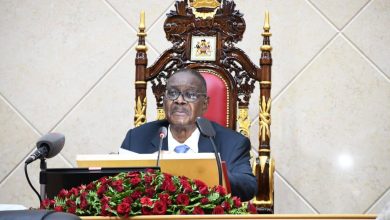EU envoy’s parting shot, gentle reminder on the basics
In winding up his tour of duty in Malawi, frank-talking European Union (EU) Ambassador Rune Skinnebach graciously granted The Nation an interview to reflect on his time here, the challenges as well as what should be done to improve the plight of the people and the economy at large.
During the interview with my colleague Eric Mtemang’ombe, the diplomat highlighted several issues. However, my picks were the need to fix the basics and put Malawi on the right track.
From a public debt hovering at K17 trillion, roughly an equivalent of two national budgets based on the 2025-26 fiscal plan pegged at K8.1 trillion, to scarcity of foreign exchange and high inflation rate at 27.7 percent as of May 2025, Malawi is grappling with a myriad of challenges. If it were a patient, it would certainly be in the high-dependence unit only, surviving courtesy of a life-support machine.
Briefly, Skinnebach said Malawi’s economic recovery hinges on restoring macroeconomic stability and undertaking deep structural reforms. Macroeconomic stability is the “gateway” to building investor confidence and effective utilisation of the EU’s Everything But Arms preferential trade arrangement.
To this end, he said private-sector-led growth is needed, but that can only happen in a stable macroeconomic environment.
Here, what comes to mind is the collapsed four-year $175 million (about K306 billion) International Monetary Fund Extended Credit Facility. The arrangement may have its flaws, but is key to boosting investor trust.
Malawi closed the year 2024 with a trade deficit of $2.62 billion (about K4.5 trillion) after imports at $3.21 billion (about K5.6 trillion) far outpaced national exports at $950 million (about K1.6 trillion). Foreign exchange reserves remained critically low, averaging 2.1 months of import cover in early 2025, below the 3.6 month minimum threshold typically recommended for credit-constrained economies. On the other hand, interest payments on the public debt absorbed K1.64 trillion, which is more than the K1.56 trillion allocated for development spending in the 2025/26 financial year.
Essentially, Malawi is an economy thriving in borrowed robes. The government’s appetite for borrowing is huge as it has the capacity to issue bonds at will to the benefit of local commercial banks posting high profits.
Foreign investors seem to be shunning the Malawi market in preference for neighbouring countries, according to published data from United Nations Conference on Trade and Development shows that in 2024, foreign direct investment (FDI) inflows stood at $220 million (about K385 billion), a rise from the previous year’s $214 million (about K375 billion), but below regional neighbours.
The data further show that last year, neighbouring Mozambique attracted FDI worth $3.553 million, with South Africa at $2.469 million, Tanzania at $1.718 million, Zambia at $1.238 million and Zimbabwe at $597 million.
To date, institutional frameworks and legislation have been put in place to support luring of FDI, but there is more to the game than just infrastructure. Macroeconomic stability comes into play again. Investors take their money where it will grow and give high returns. It is a competition with other countries and survival of the fittest.
When one looks at the Malawi situation and the policy prescriptions, one wonders whether they are the right ones to heal the economy and how long it would take.
I must say that the points Ambassador Skinnebach raised in his parting interview are not necessarily new. They are issues both local and international experts have more than once highlighted. These include the need for diversification of exports and value-addition to earn more forex, growing local manufacturing to achieve import-substitution and cut on the import bill. The problems are known, but the challenge has been lack of boldness to do business unusual.
Malawi continues to struggle largely because of a mismatch between the political decision-makers on one hand and the reality on the ground on the other. In other words, the technocrats seem to know what the problem is and what should be done to turnaround the situation, but the political elites, the most powerful in the equation, see the issues from a different and populist, but often destructive perspective.
It is this disconnection that has seen Malawi struggle in the past six decades by taking the same approach and expecting to improve the economy or achieve different results. Total insanity, I must say.



